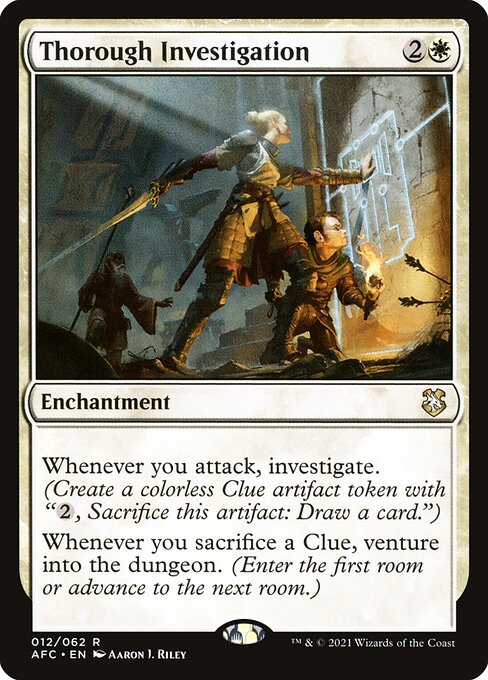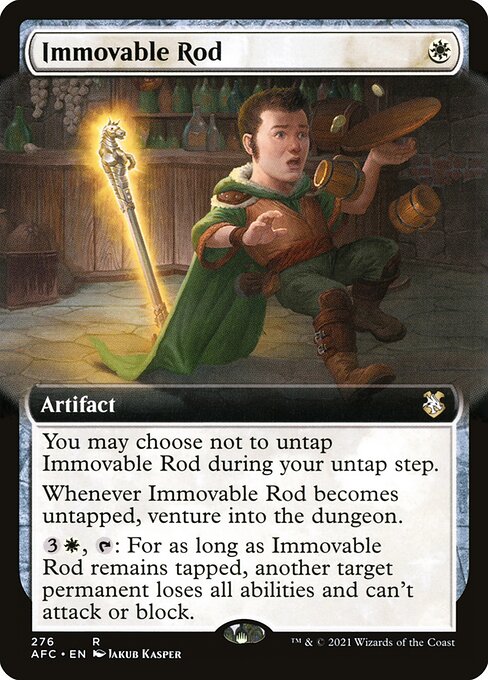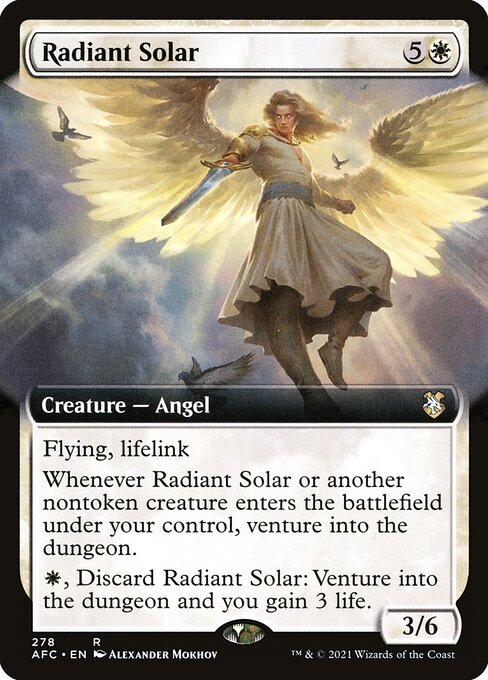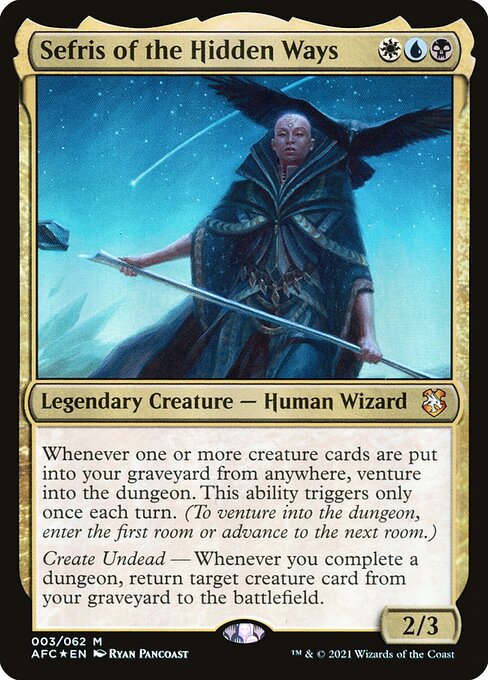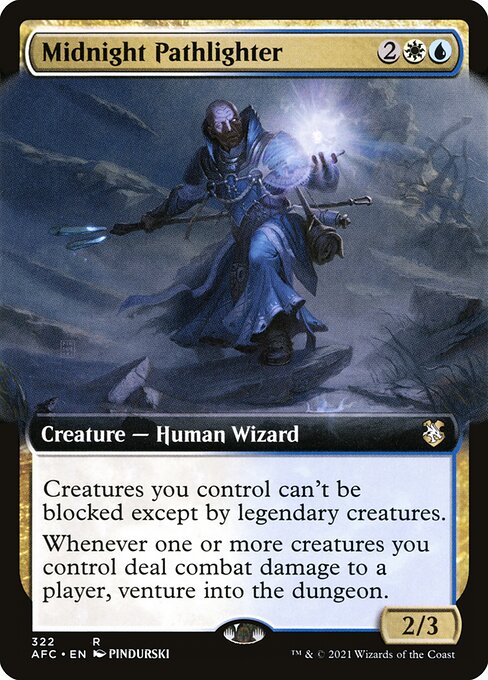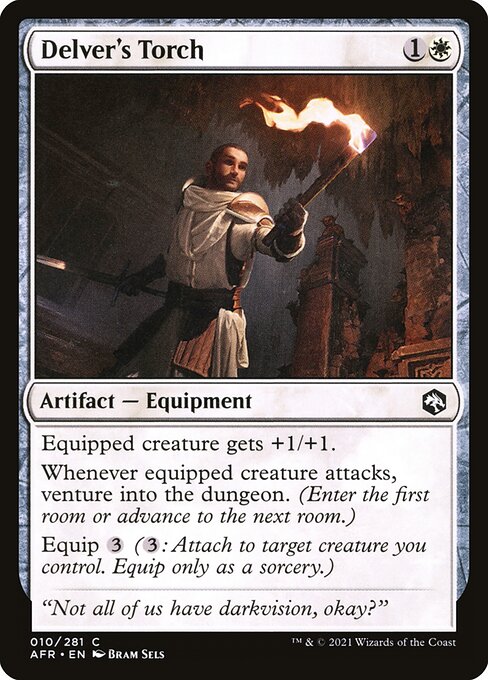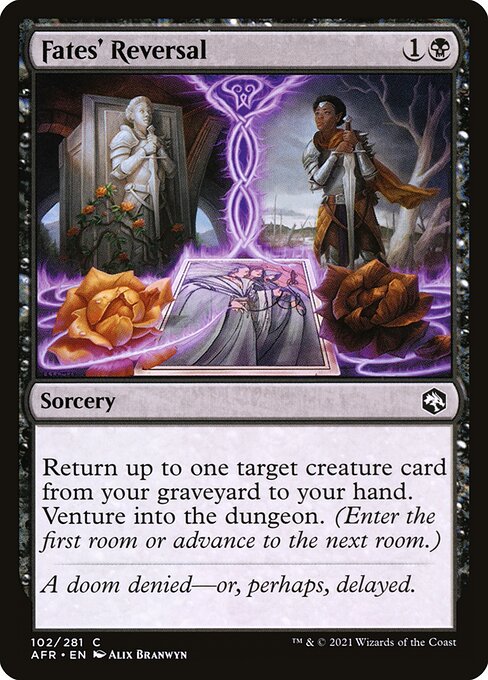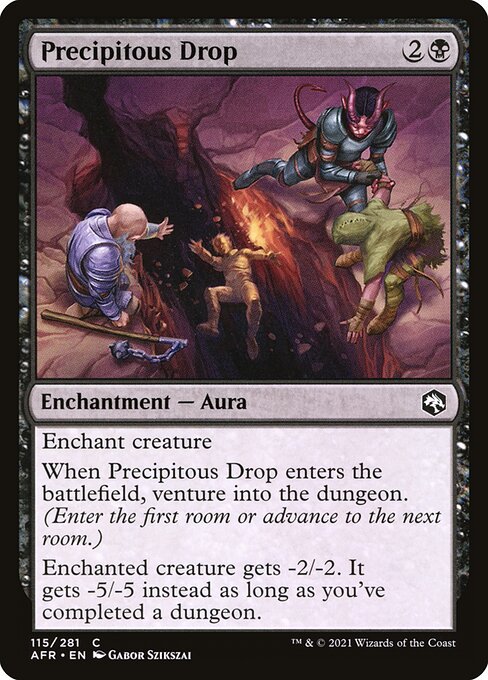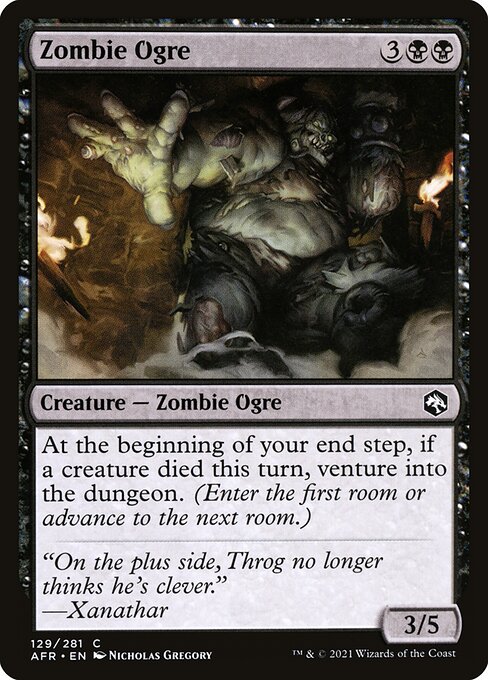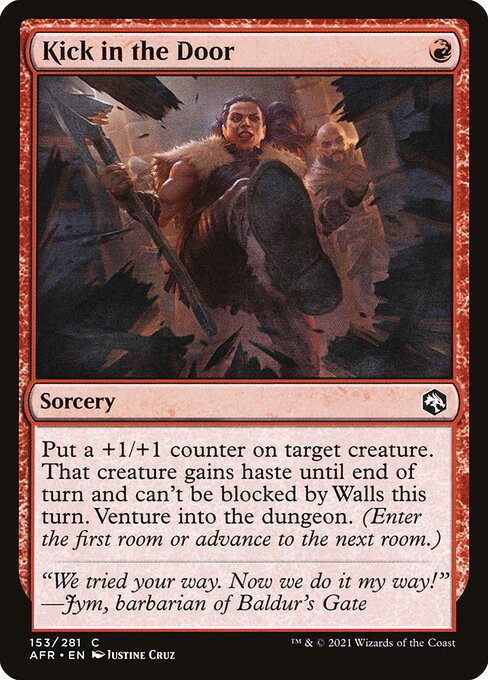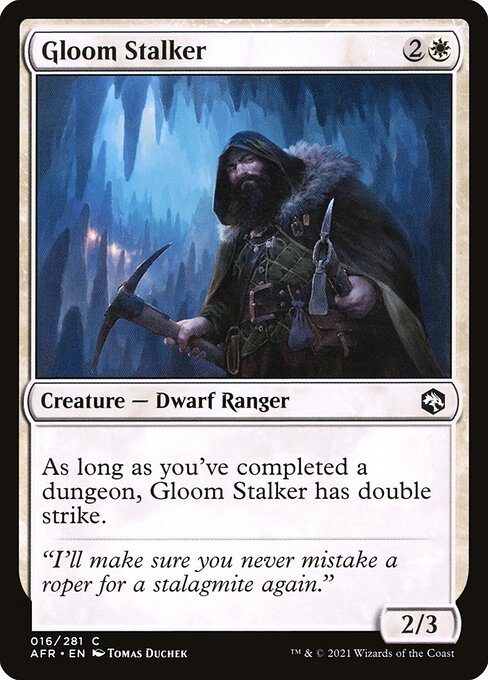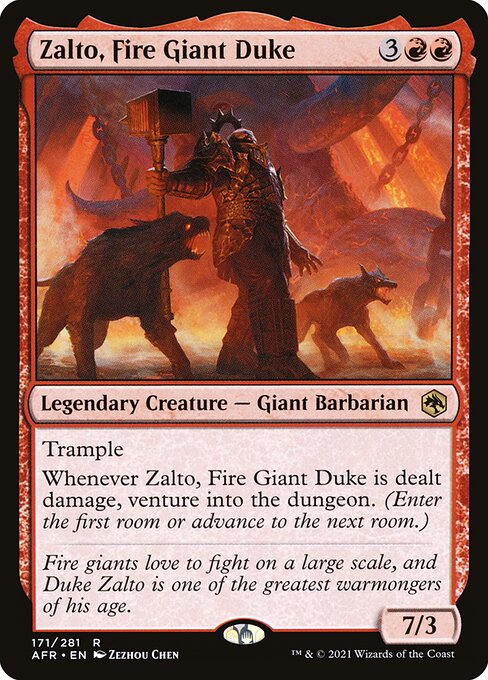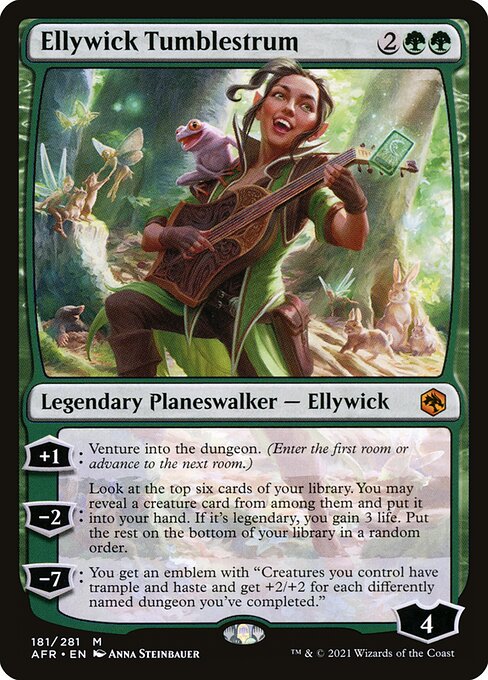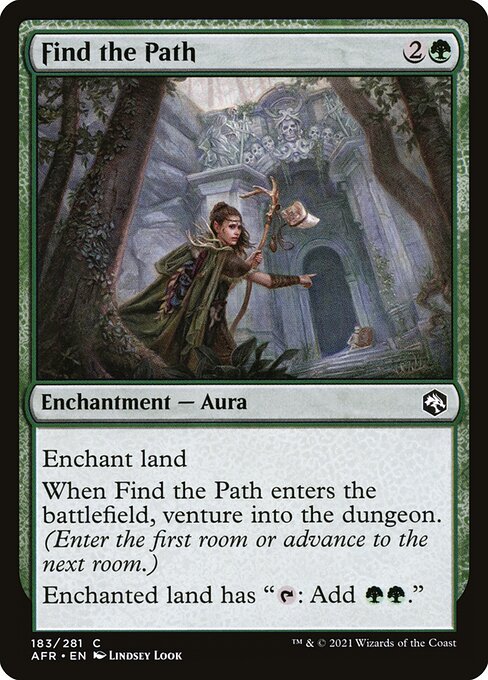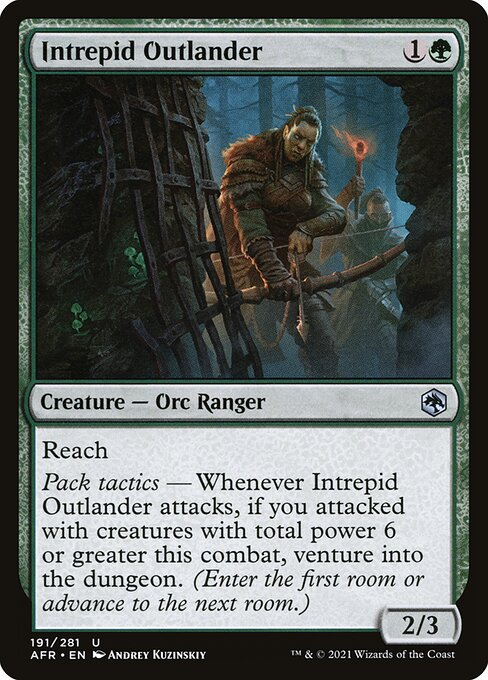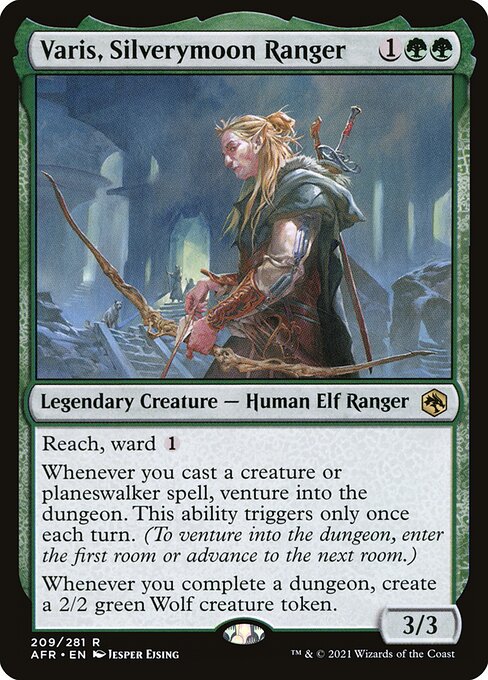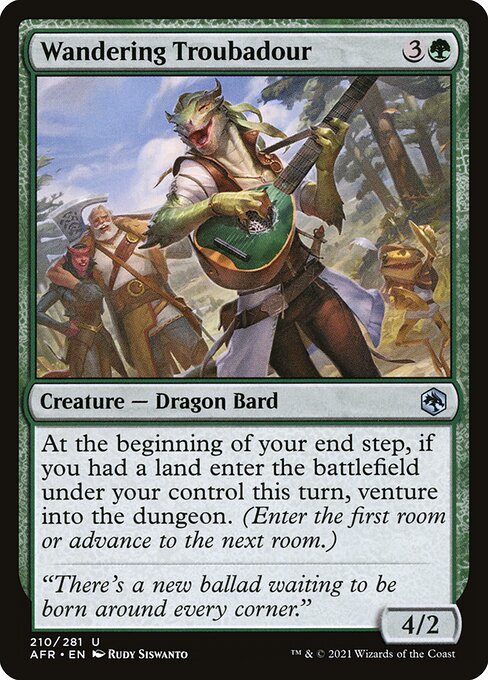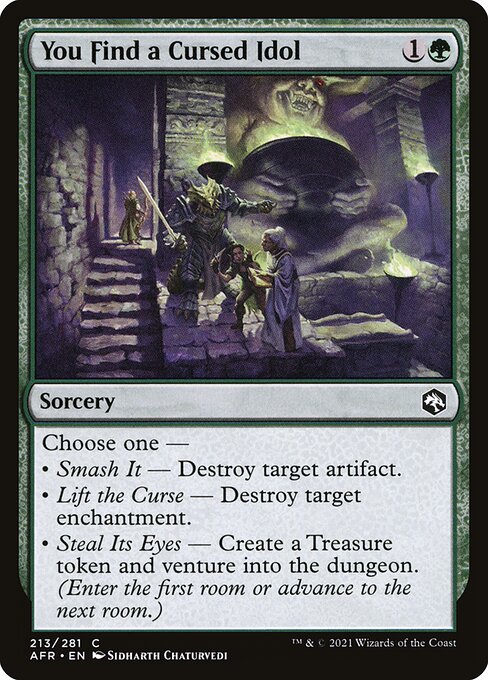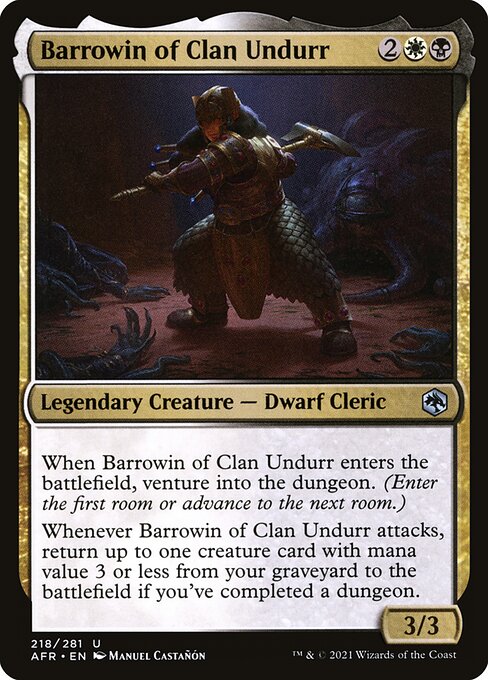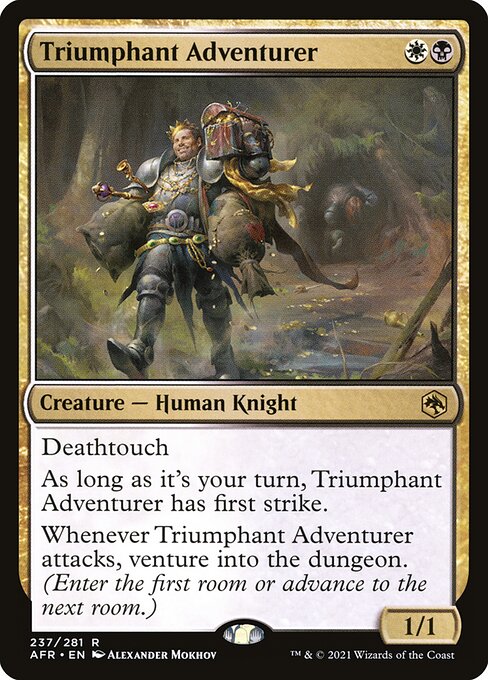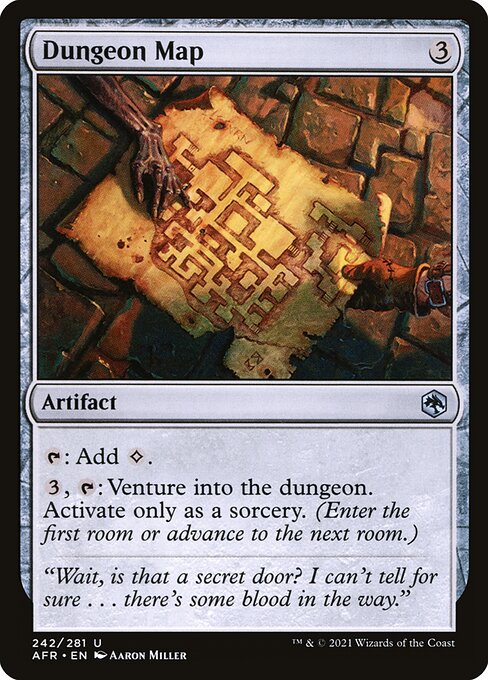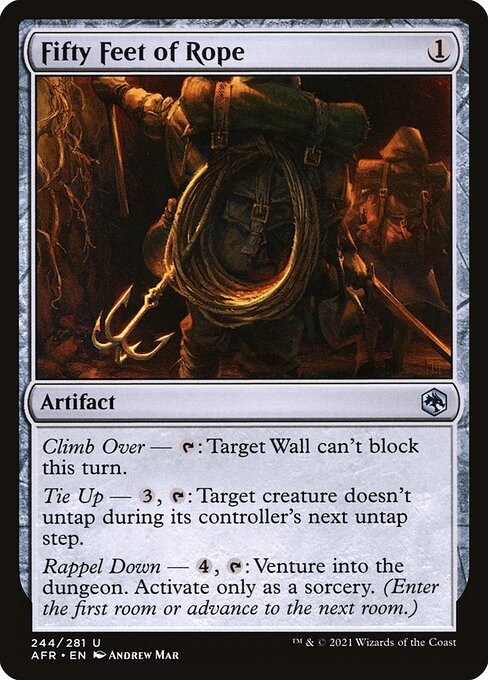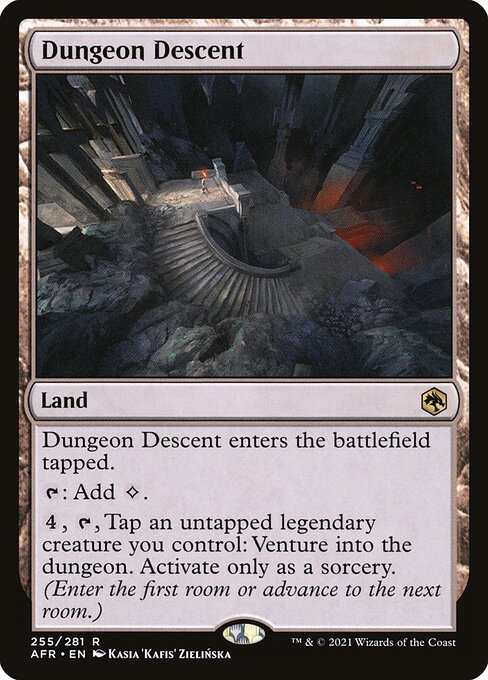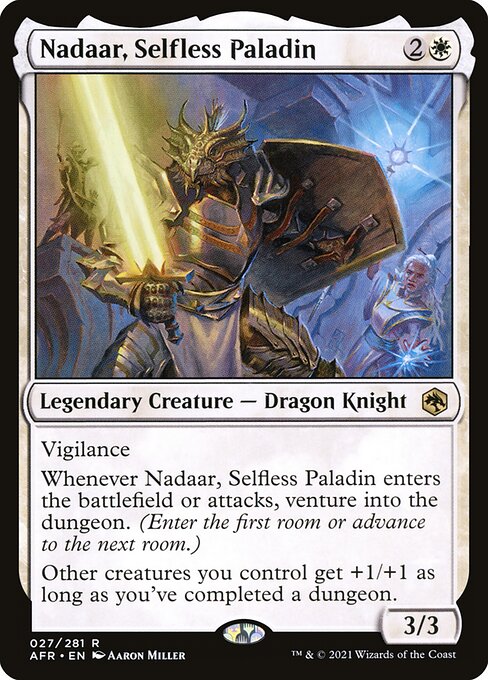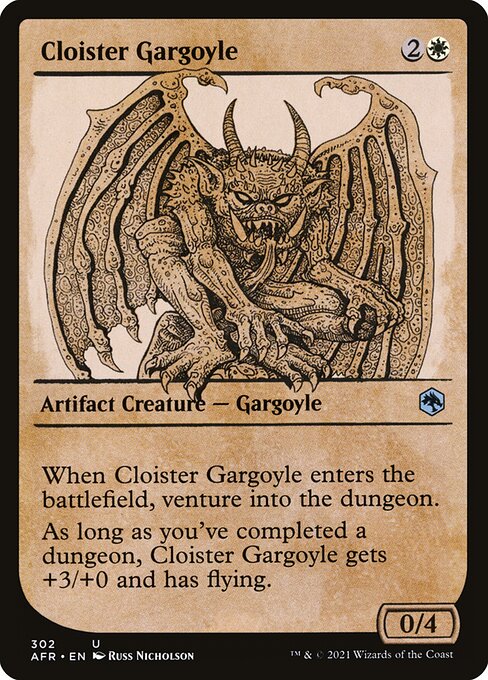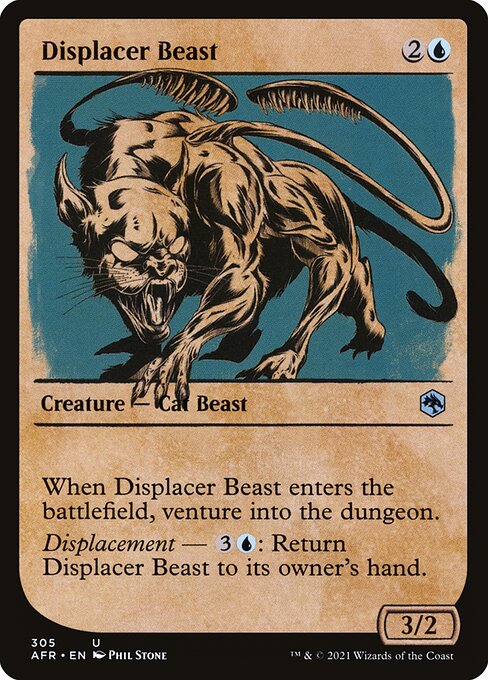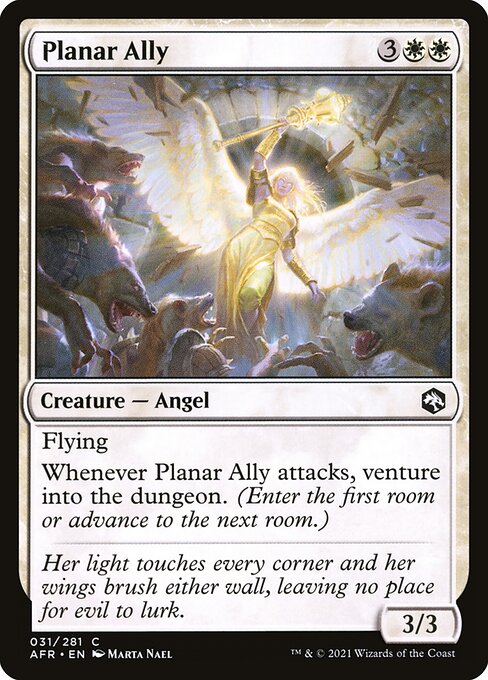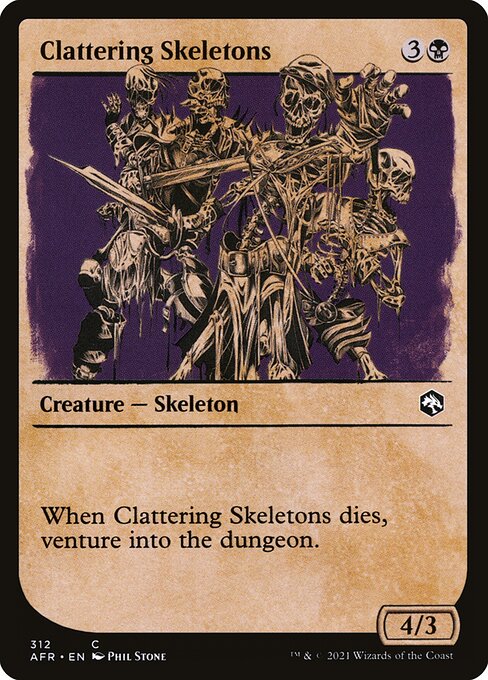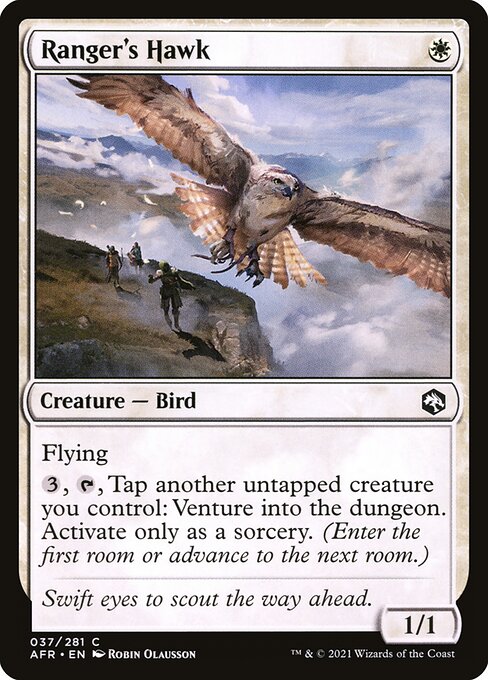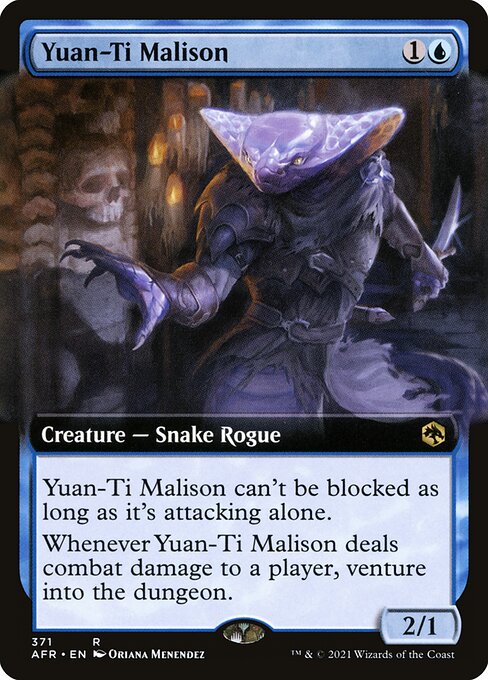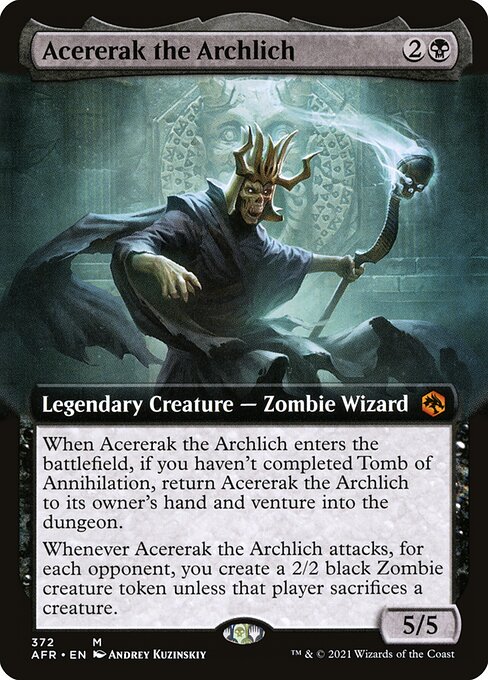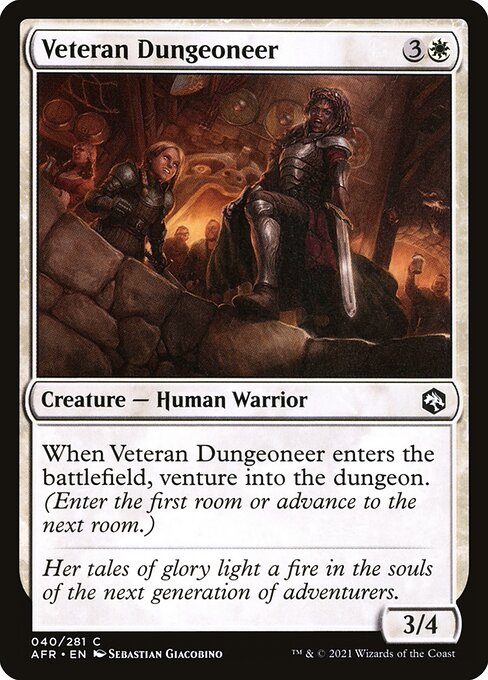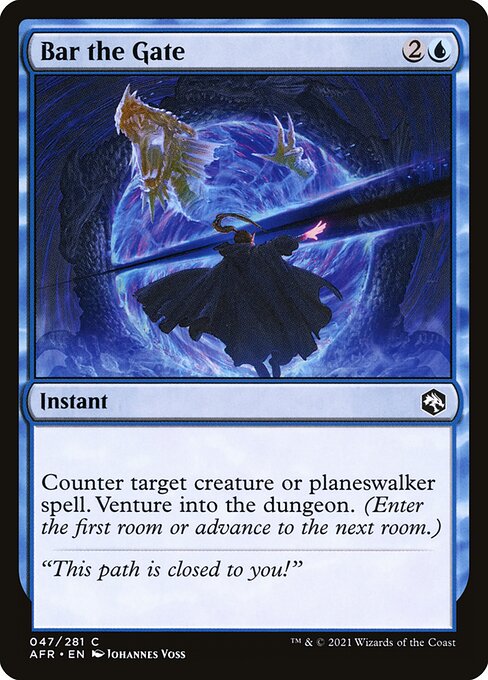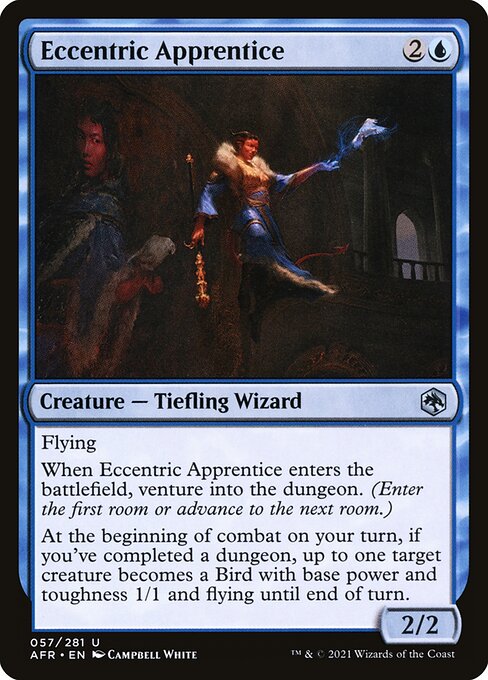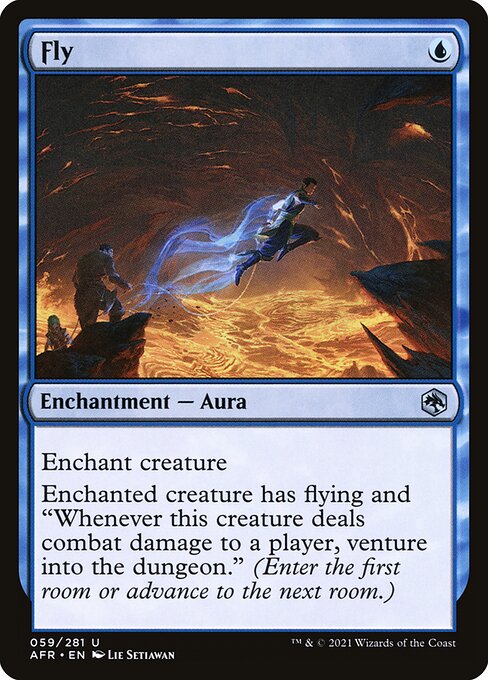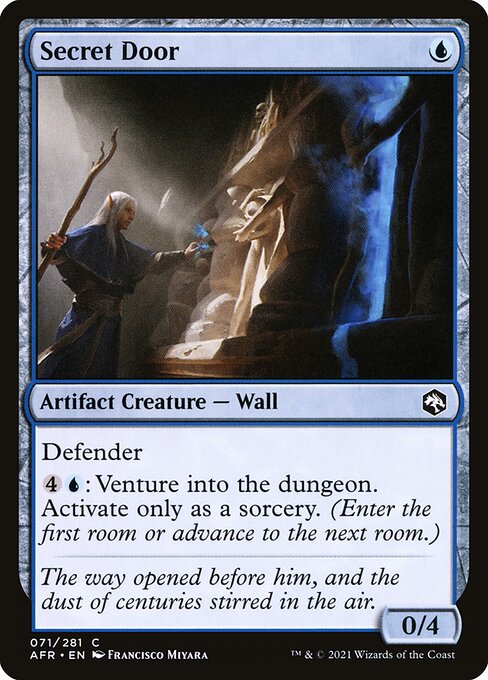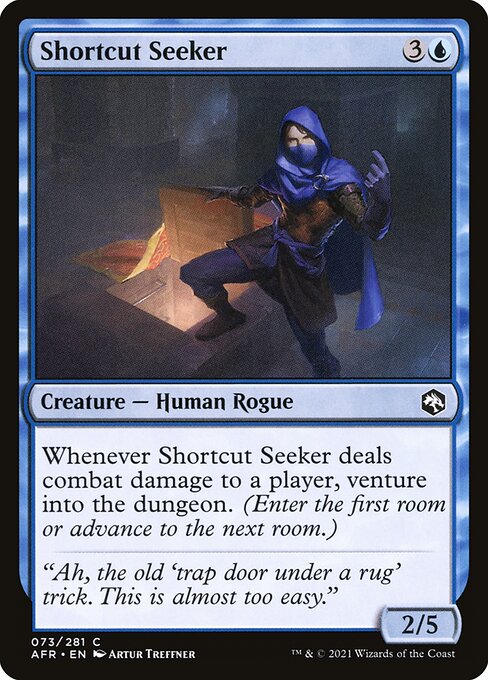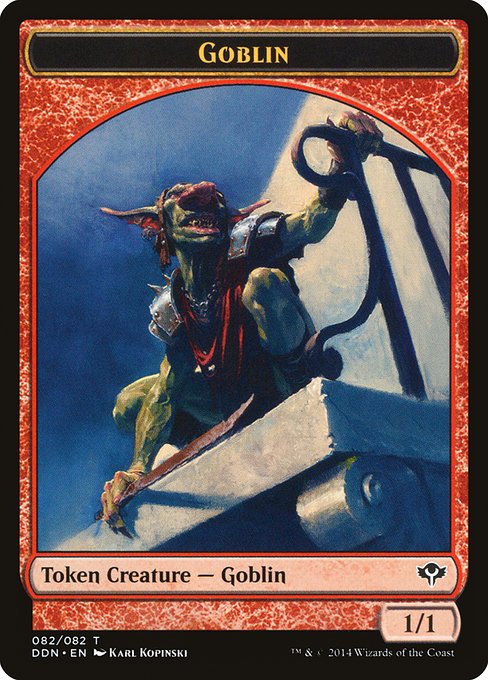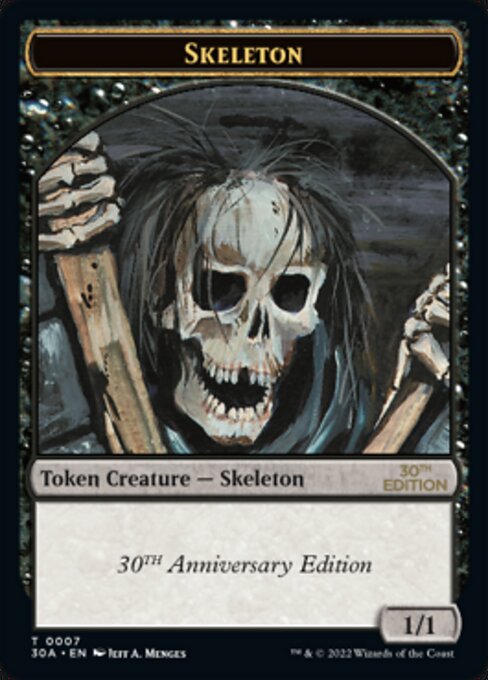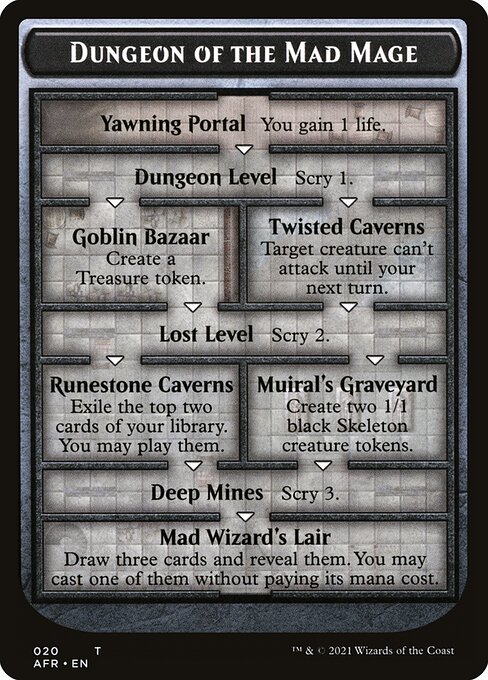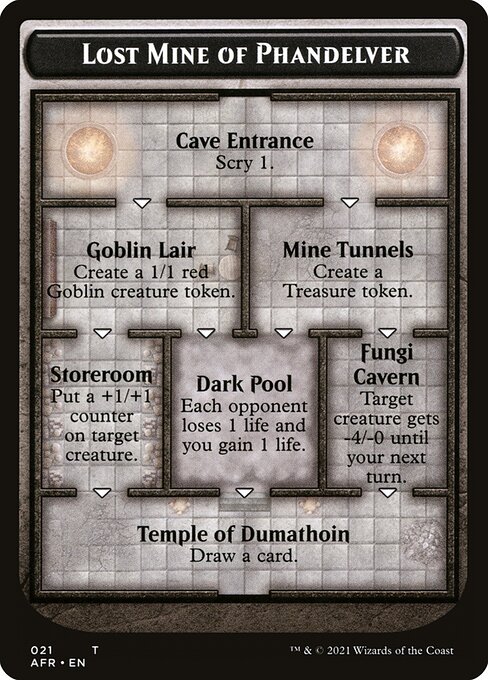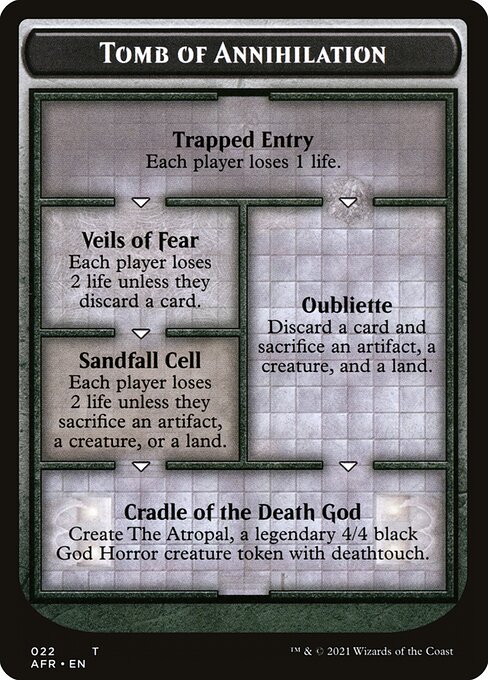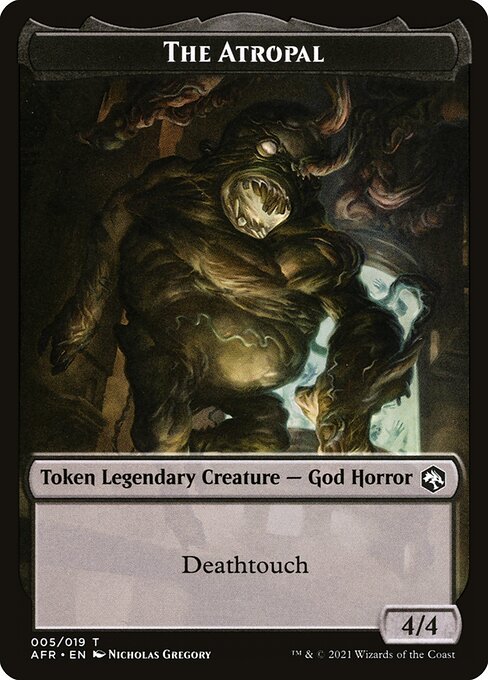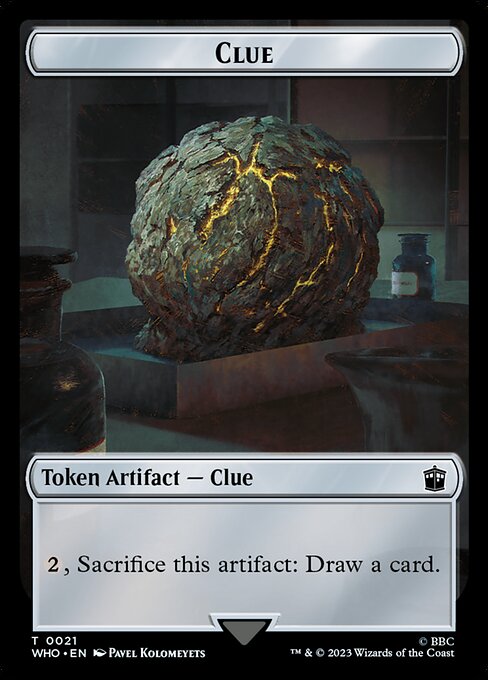standard
future
historic
gladiator
pioneer
explorer
modern
legacy
pauper
vintage
penny
commander
brawl
alchemy
paupercommander
duel
oldschool
premodern
Rulings
A player may only have one dungeon in the command zone at a time.
You can only move forward (well, downward) in a dungeon, never backwards or sideways.
If you somehow venture into the dungeon while a room's ability is on the stack, you will continue on in the dungeon. If you're already in the last room, complete that dungeon and start a new one.
To venture into the dungeon, a player moves their venture marker into the next room of the dungeon they are currently in. If they aren't currently in a dungeon, that player instead chooses a dungeon card from outside the game, puts it into the command zone, and moves their venture marker onto the first room.
Dungeons are removed from the game as a state-based action.
Moving into a dungeon room will cause its room ability to trigger.
Once you resolve the last room ability of a dungeon, that dungeon is now completed and is removed from the game.
The player venturing into the dungeon chooses which dungeon they will venture into. They may choose a dungeon that they have already completed this game.
Choosing the dungeon or room to venture into is part of resolving the venture into the dungeon keyword action. Once that choice is made, players may not respond until after the appropriate room ability has triggered.
Dungeon cards are not part of a player's deck or sideboard. In both constructed and limited formats, players can use any dungeon card when they venture into the dungeon.
You can only move forward (well, downward) in a dungeon, never backwards or sideways.
If you somehow venture into the dungeon while a room's ability is on the stack, you will continue on in the dungeon. If you're already in the last room, complete that dungeon and start a new one.
To venture into the dungeon, a player moves their venture marker into the next room of the dungeon they are currently in. If they aren't currently in a dungeon, that player instead chooses a dungeon card from outside the game, puts it into the command zone, and moves their venture marker onto the first room.
Dungeons are removed from the game as a state-based action.
Moving into a dungeon room will cause its room ability to trigger.
Once you resolve the last room ability of a dungeon, that dungeon is now completed and is removed from the game.
The player venturing into the dungeon chooses which dungeon they will venture into. They may choose a dungeon that they have already completed this game.
Choosing the dungeon or room to venture into is part of resolving the venture into the dungeon keyword action. Once that choice is made, players may not respond until after the appropriate room ability has triggered.
Dungeon cards are not part of a player's deck or sideboard. In both constructed and limited formats, players can use any dungeon card when they venture into the dungeon.
Rulings
A player may only have one dungeon in the command zone at a time.
You can only move forward (well, downward) in a dungeon, never backwards or sideways.
If you somehow venture into the dungeon while a room's ability is on the stack, you will continue on in the dungeon. If you're already in the last room, complete that dungeon and start a new one.
To venture into the dungeon, a player moves their venture marker into the next room of the dungeon they are currently in. If they aren't currently in a dungeon, that player instead chooses a dungeon card from outside the game, puts it into the command zone, and moves their venture marker onto the first room.
Dungeons are removed from the game as a state-based action.
Moving into a dungeon room will cause its room ability to trigger.
Once you resolve the last room ability of a dungeon, that dungeon is now completed and is removed from the game.
The player venturing into the dungeon chooses which dungeon they will venture into. They may choose a dungeon that they have already completed this game.
Choosing the dungeon or room to venture into is part of resolving the venture into the dungeon keyword action. Once that choice is made, players may not respond until after the appropriate room ability has triggered.
Dungeon cards are not part of a player's deck or sideboard. In both constructed and limited formats, players can use any dungeon card when they venture into the dungeon.
You can only move forward (well, downward) in a dungeon, never backwards or sideways.
If you somehow venture into the dungeon while a room's ability is on the stack, you will continue on in the dungeon. If you're already in the last room, complete that dungeon and start a new one.
To venture into the dungeon, a player moves their venture marker into the next room of the dungeon they are currently in. If they aren't currently in a dungeon, that player instead chooses a dungeon card from outside the game, puts it into the command zone, and moves their venture marker onto the first room.
Dungeons are removed from the game as a state-based action.
Moving into a dungeon room will cause its room ability to trigger.
Once you resolve the last room ability of a dungeon, that dungeon is now completed and is removed from the game.
The player venturing into the dungeon chooses which dungeon they will venture into. They may choose a dungeon that they have already completed this game.
Choosing the dungeon or room to venture into is part of resolving the venture into the dungeon keyword action. Once that choice is made, players may not respond until after the appropriate room ability has triggered.
Dungeon cards are not part of a player's deck or sideboard. In both constructed and limited formats, players can use any dungeon card when they venture into the dungeon.
Votre collection ? vos decks ?
Envie de gérer votre collection et/ou créer des decks ?
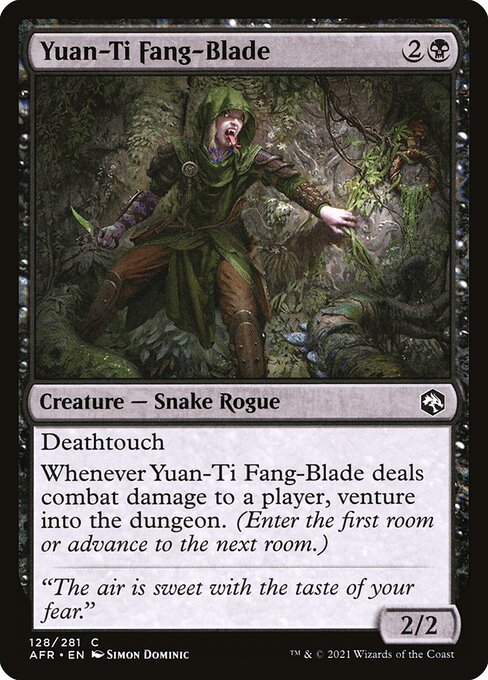

 0
0
 0.07€
0.07€
